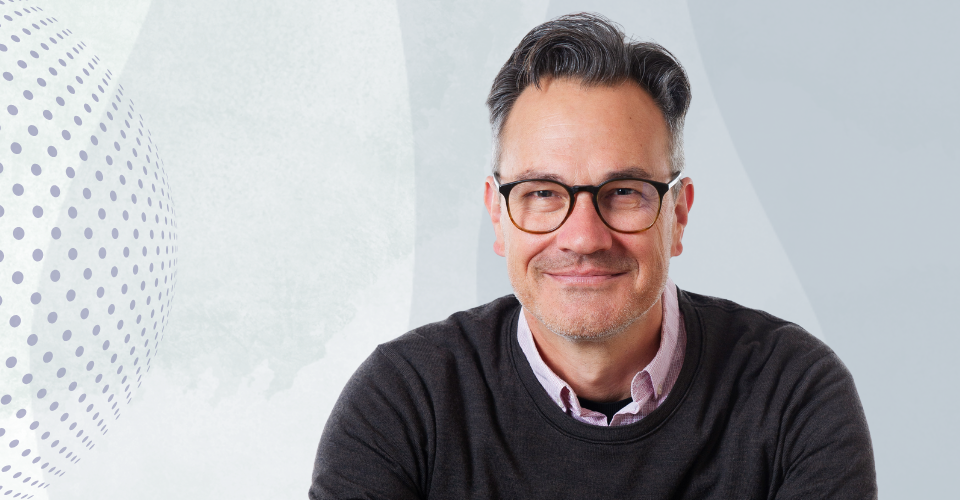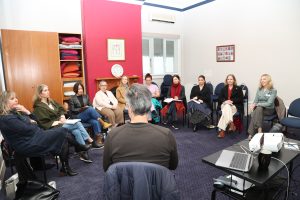EFT in Action – An Interview with Barry Strmelj

How Practice-Based Learning Builds Therapist Confidence
Emotion-Focused Therapy (EFT) can be deeply transformative – but putting it into practice isn’t always straightforward. That’s something counselling psychologist and EFT supervisor Barry Strmelj knows well. With years of experience training, supervising, and working with clients in private practice, Barry created the EFT in Action series to bring clarity and confidence to key areas of EFT practice.
We asked Barry what sparked the idea – and how these focused, experiential workshops support therapists to navigate the complexities of real-world EFT work. Read on to learn more in this EFT therapist interview.

Barry, what led you to create the EFT in Action workshops?
“Over time, I noticed therapists returning to the same questions. ‘Am I doing this right?’ ‘What should I do if this happens?’ EFT is incredibly powerful, but it’s not always easy to apply, especially when faced with complex client cases. The workshops grew out of a desire to address these specific concerns and give therapists concrete, actionable tools that can take boost their confidence and competence in these key areas.”
What do you find are the most common challenges therapists face with EFT?
“One of the main challenges I see is that while therapists understand the theory behind EFT, applying that theory in real-time can be tricky. It’s about staying in the moment, tracking the emotional process, and knowing when to intervene or adjust. EFT requires a deep level of presence, and that takes practice. Many therapists are seeking more confidence in handling these moments, which is exactly what these workshops aim to address.”

May 24, 2025: Empty Chair Work
Why did you choose Empty Chair Work as the focus for the first workshop?
“Empty chair work is such an evocative and transformative tool in EFT. It offers a chance for clients to access and process deep emotional wounds, particularly from childhood. But it can also be difficult to navigate. If done incorrectly, it can feel overwhelming for the client or off-track for the therapist. The workshop will help therapists refine the core skills of this technique and offer strategies to handle moments when things go off-course. It’s one of the most powerful tools we have for emotional change, and I wanted to make sure therapists feel confident using it.”

September 6, 2025: Core Pain and Case Formulation
What is the importance of case formulation in EFT?
“Case formulation is the EFT therapist’s roadmap – it helps us understand the client’s emotional experience and guides the direction of therapy. Without it, we’re guessing. A well-formulated case allows us to stay focused on the client’s core pain and ensure we’re offering interventions that move them toward healing. This workshop will help therapists develop a process-based formulation that supports the entire therapeutic journey.”
May 2, 2026: Empathic Attunement
Why do you believe empathic attunement is such a cornerstone of EFT?
“Empathy is about being with the client in a way that makes them feel truly understood and supported. In EFT, that attunement – that deep connection to the client’s emotional state – is what allows them to start opening up and engaging with their feelings. It’s how we help clients build trust in themselves and their emotional experiences. This workshop is all about strengthening that skill, both in terms of how we experience it ourselves and how we communicate it to our clients.”
What can people expect from the workshops themselves?
“The workshops are very hands-on and experiential. We’ll cover theory, but the focus is on practice: real-life demonstrations, video examples, and lots of opportunities for participants to practice in a safe, supportive environment. The goal is to give therapists a concrete map to guide their work, while also building confidence to navigate the complexities of working with clients.”
 Who should attend these workshops?
Who should attend these workshops?
“Anyone working with clients using an EFT lens – whether you’re early in your journey or more experienced and wanting to refine a particular area. The content is designed to meet you where you’re at and offer practical steps you can use straight away.”
If someone’s thinking about attending, what would you say to them?
“If you’ve ever found yourself wondering, ‘Am I doing this right?’ or felt unsure about your next steps with a client, then these workshops are for you. They offer a chance to build practical skills and grow in confidence, so you can take EFT into your sessions with more clarity and ease. Plus, they’re a great opportunity to connect with a community of like-minded professionals who are all navigating the same challenges.”
Behind the structure and strategies, Barry brings a strong sense of care for therapists doing the work.
“I’ve always felt that therapy – and training – should come with a sense of safety. These workshops are about learning, but also about supporting each other as we build confidence in the work.”
Upcoming Workshops
May 2, 2026: Empathic Attunement: A Practical Guide to Being Present and Attuning to Clients when Working in and EFT Way
July 25, 2026: Working with Anxiety
October 24, 2026: Working with Interruptions





